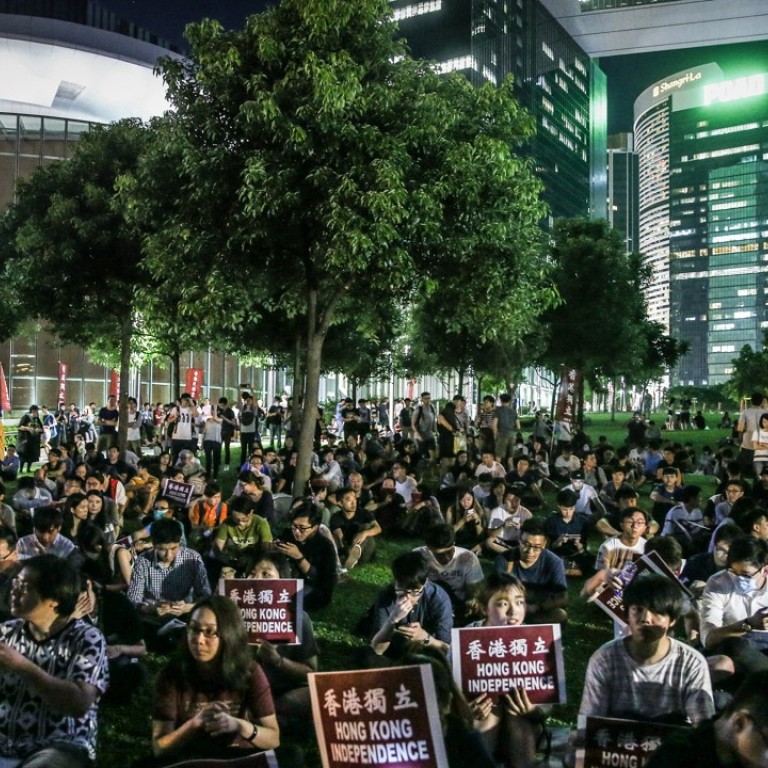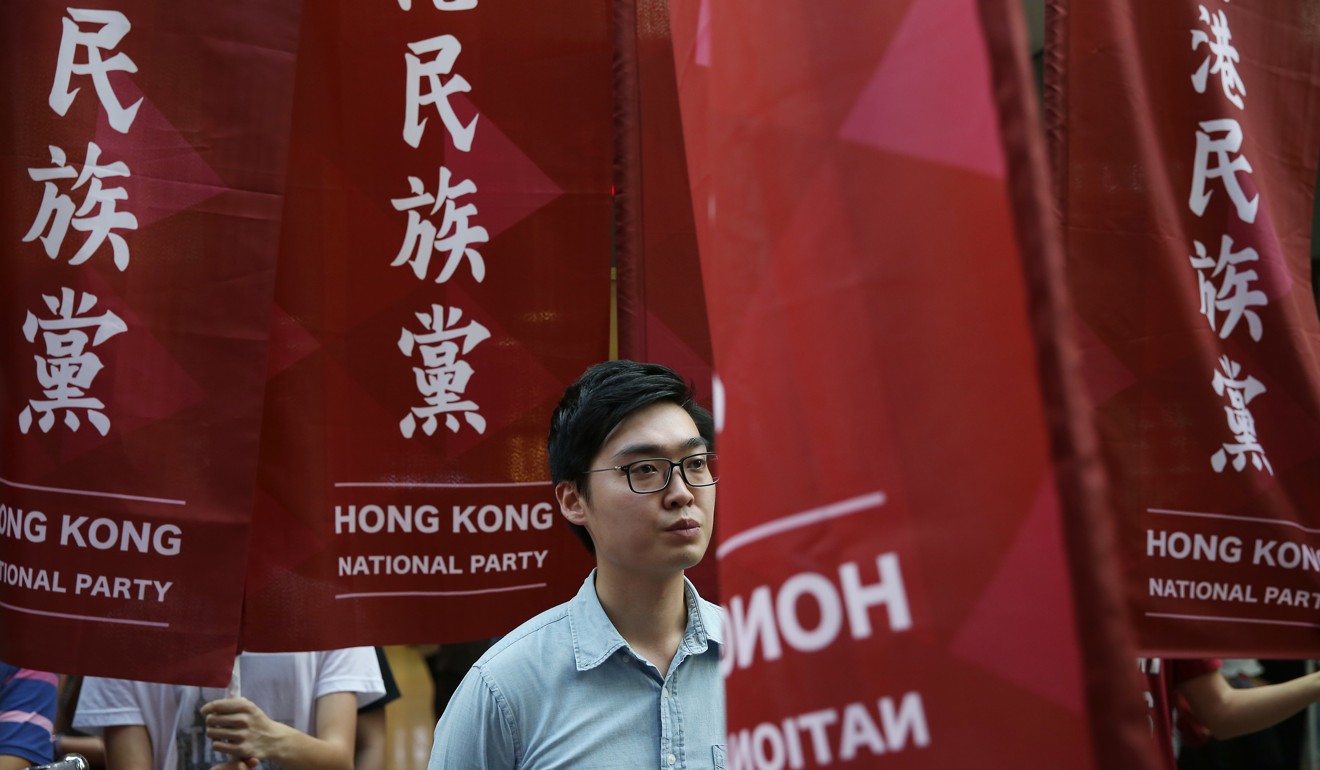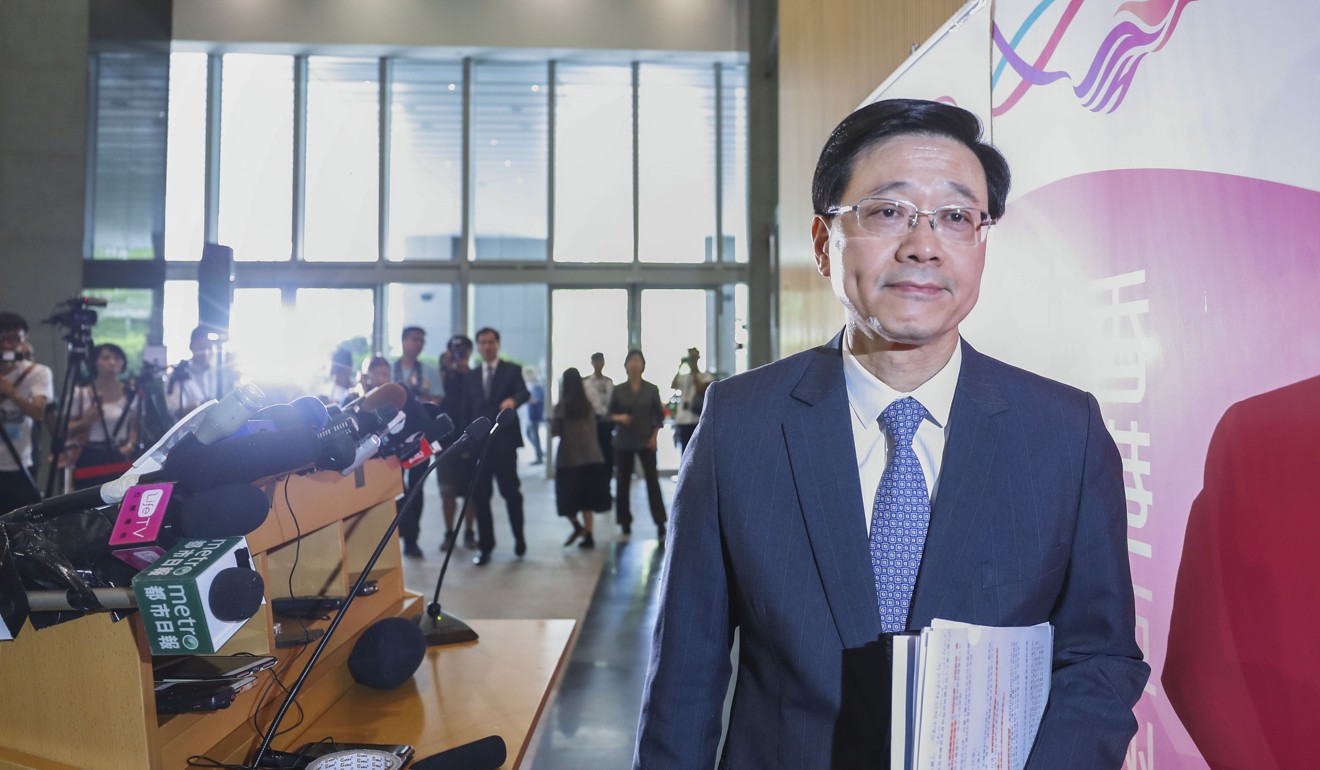
Threat of violence from Hong Kong National Party at heart of police bid to have it banned
Assistant Commissioner Rebecca Lam argues for pre-emptive action, citing threats from party’s leaders to advance independence agenda through ‘whatever effective means’
The separatist party authorities are seeking to ban poses an “imminent threat” to national security because of its leaders’ concrete actions to advance an independence agenda for Hong Kong and pledge to achieve it by “whatever effective means”, according to an unprecedented proposal drafted by police.
While acknowledging that the Hong Kong National Party (HKNP) had yet to resort to violence, Assistant Commissioner of Police Rebecca Lam Hiu-tong argued in an 86-page document that the possibility should not be ruled out and pre-emptive action should be taken.
But some legal scholars warned the reasoning cited by police did not justify such a crackdown, arguing such a drastic approach would put Hongkongers’ freedom of association and expression at risk.

The police document – submitted to Secretary for Security John Lee Ka-chiu and seen by the Post on Wednesday – recommended halting the party’s operation under the Societies Ordinance because its actions posed “a clear and real” threat to national security and public safety.
“Instead of making mere political expressions, HKNP has since its inception developed strategies, made holistic plans and taken concrete steps to materialise their aims of independence of Hong Kong from the People’s Republic of China … and incitement of hatred and discrimination against mainland people through all effective means, including the use of violence,” Lam, in her capacity as assistant societies officer, wrote.
National Party has only itself to blame
The actions which Lam was referring to included “propaganda” through media channels, “school infiltration”, street booths and building up overseas connections with “representatives of organisations advocating independence of South Mongolia, Tibet, East Turkestan and Taiwan”.
“The actions pose an imminent threat to the territorial integrity of the People’s Republic of China, the fundamental constitutional order of “one country, two systems”, the internal security of Hong Kong, as well as the respect of the rights and freedoms of mainland people,” Lam wrote.
She argued that it was “beyond doubt” the party, which had made “coordinated and concrete efforts” to seek independence, had crossed the line separating the lawful exercise of its constitutional rights from illegal activity subject to sanctions and constraints.
It would be only responsible for the authorities to take “preventive measures” before any violence, she added.
The document, which was also sent to Chan on Tuesday morning, came with 20 discs and 706 pages of word-by-word transcripts of the 51 speeches made by party members online, at public events and in media interviews.
Security chief Lee has given the HKNP an ultimatum to submit its case within three weeks as to why he should not act on the police recommendation.

Eric Cheung Tat-ming, principal lecturer at the University of Hong Kong’s law school, said the evidence quoted by police merely reflected the HKNP’s attempts to “promote and make speeches” and was insufficient to constitute an “imminent threat” to national security.
“They were no actual actions or violent moves, like preparing to place bombs, militarising themselves, or starting a revolution,” Cheung said.
National Party is born: will push for independence, will not recognise the Basic Law
Just as every individual still enjoyed the right to talk about independence, he argued, members of political parties or organisations should be free to do so as well, and should not be deprived of their right to freedom of association.
The legal scholar warned that setting such a “loose” threshold could lead to “draconian” laws in future and affect other organisations, including those promoting self-determination rather than outright independence.
Chan said his lawyer was reviewing the police document and he would wait for legal advice before deciding on a proper response, which might include a judicial review.


